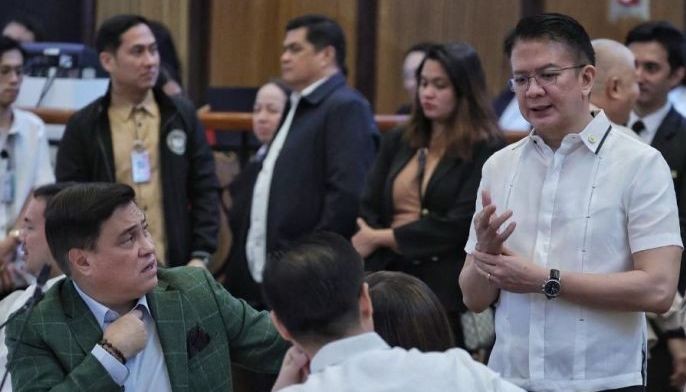MANILA, Philippines — State medical insurer PhilHealth will receive no government subsidy in the proposed 2025 national budget, the bicameral conference committee announced on Wednesday, December 11.
Sen. Grace Poe, the national budget’s sponsor in the Senate, explained that PhilHealth must first exhaust its reserve funds.
Related Stories
In an ambush interview at the Manila Hotel, Poe acknowledged that PhilHealth’s budget has been a recurring issue of contention.
“For now, Philhealth will not be given a budget, because they must first use their reserve funds,” Poe said in Filipino.
Poe argued that PhilHealth still has sufficient funds for its operational costs. The allocation, however, initially intended for the agency was redirected to other government agencies in greater need.
She estimated that PhilHealth has around P600 billion in reserve funds. She said Philhealth has had a history of inefficiently utilizing government subsidy.
Several senators have already made public their displeasure at Philhealth’s excessive idle funds, including Senate President Francis Escudero.
In favor of subsidy
Opposition Senator Risa Hontiveros, however, strongly criticized the decision to deny PhilHealth any subsidy. She argued that while management issues persist within the agency, its beneficiaries should not bear the consequences of its shortcomings.
“This ‘zero subsidy’ is unfair, illegal and potentially unconstitutional. How about our fellow countrymen who cannot pay their premium contribution?" Hontiveros said. "This is a big blow to our goal of achieving universal healthcare in the country."
Hontiveros noted that under the PhilHealth charter, the Sin Tax Law, and the Universal Healthcare Act, a portion of taxes must be allocated to PhilHealth regardless of its excess funds.
She also noted that reserve funds are intended for emergencies or future obligations and cannot be used for premium payments of indirect contributors.
Budget troubles
PhilHealth’s budget has been a contentious issue throughout 2024.
Lawmakers were previously surprised when the Department of Finance (DOF) ordered PhilHealth to return P89.9 billion in reserve funds to the national treasury.
The transfer, however, was legally grounded on a provision in the 2024 General Appropriations Act that allowed the DOF to recall idle funds and reallocate it for more efficient uses.
The legality of this move was challenged before the Supreme Court, which issued a temporary restraining order on further transfers of PhilHealth’s reserves.
For 2025, Poe confirmed that no similar provision was included in the bicameral committee’s budget proposal.
“We did not put it anymore becaue the Supreme Court had made a decision,” Poe said.


